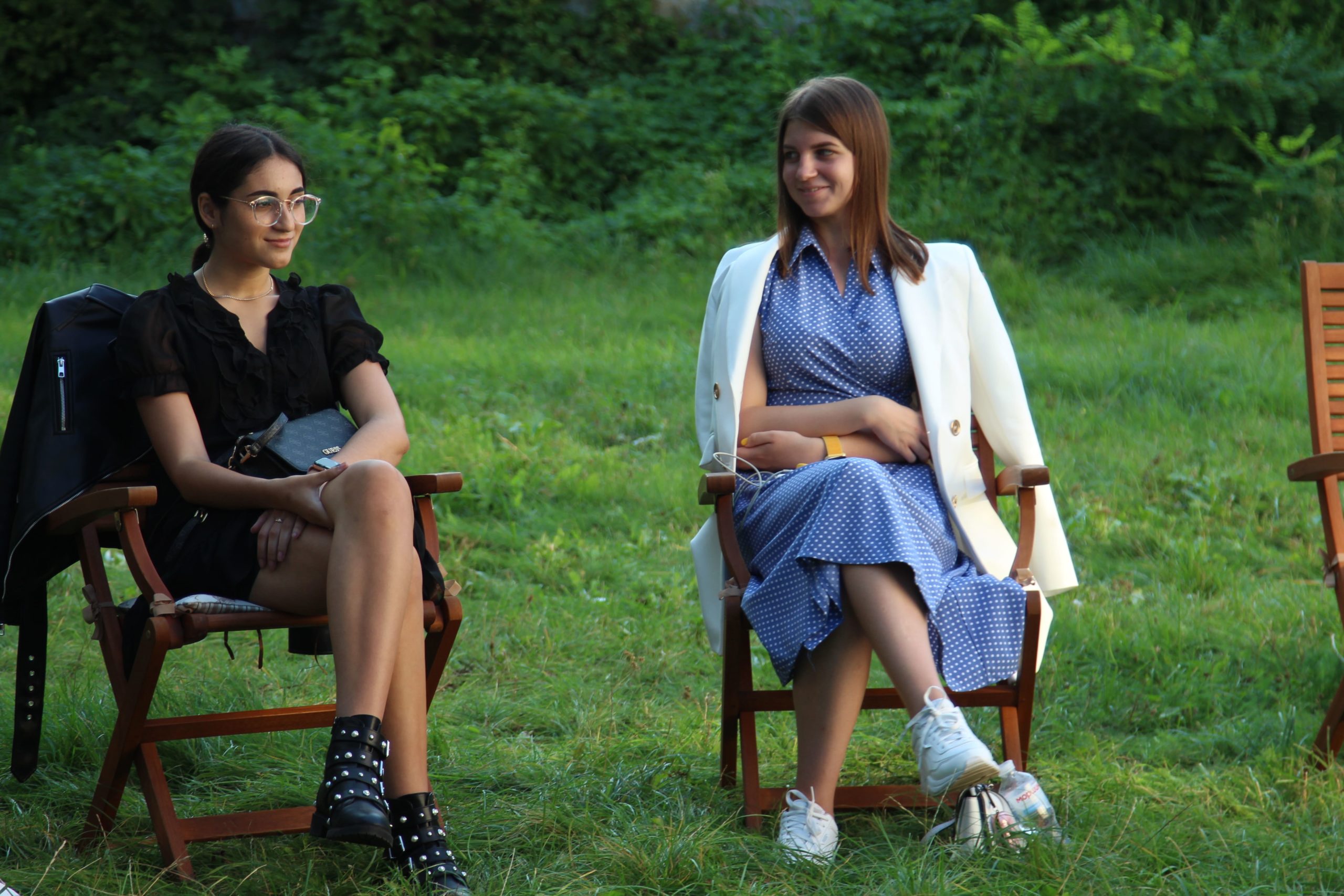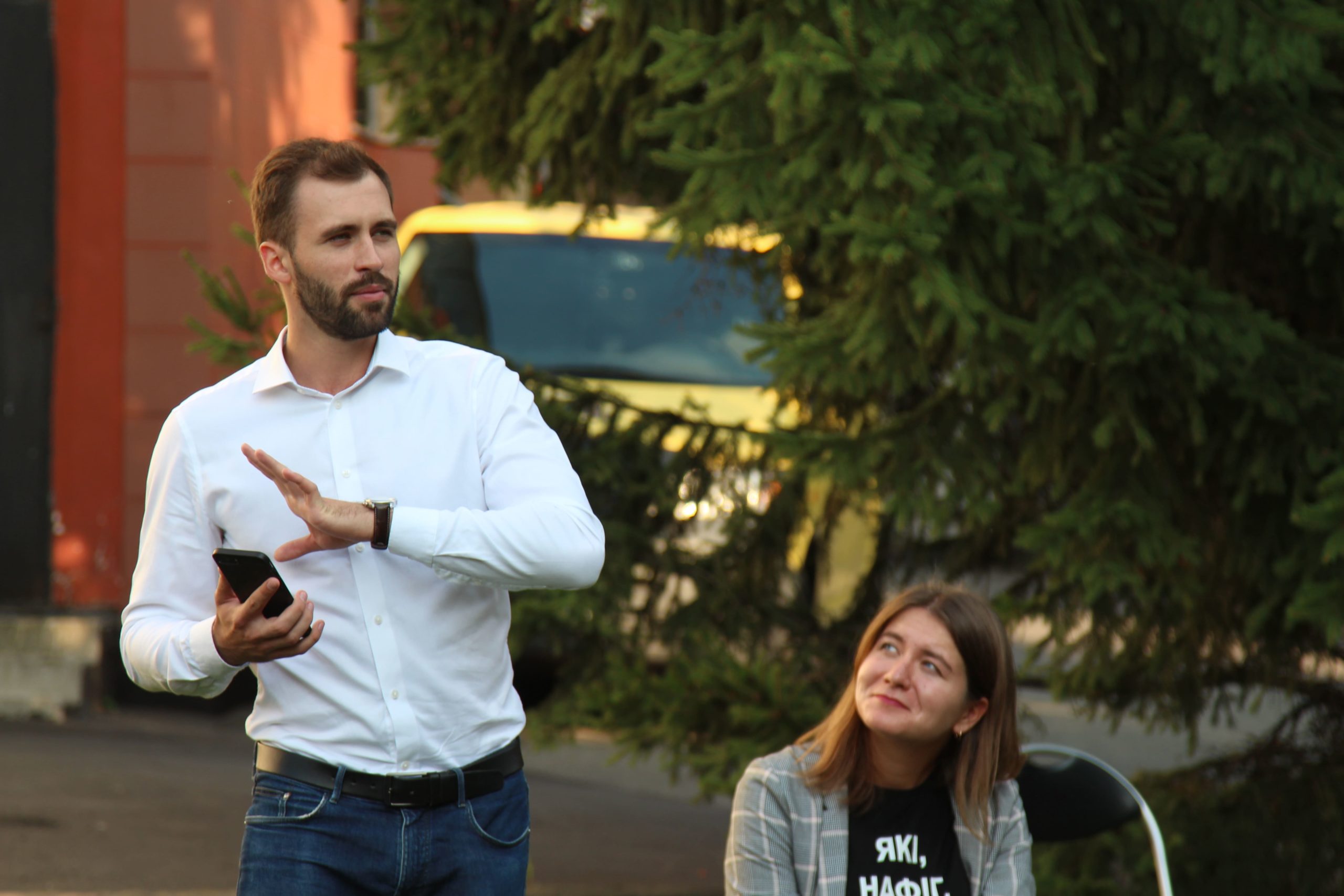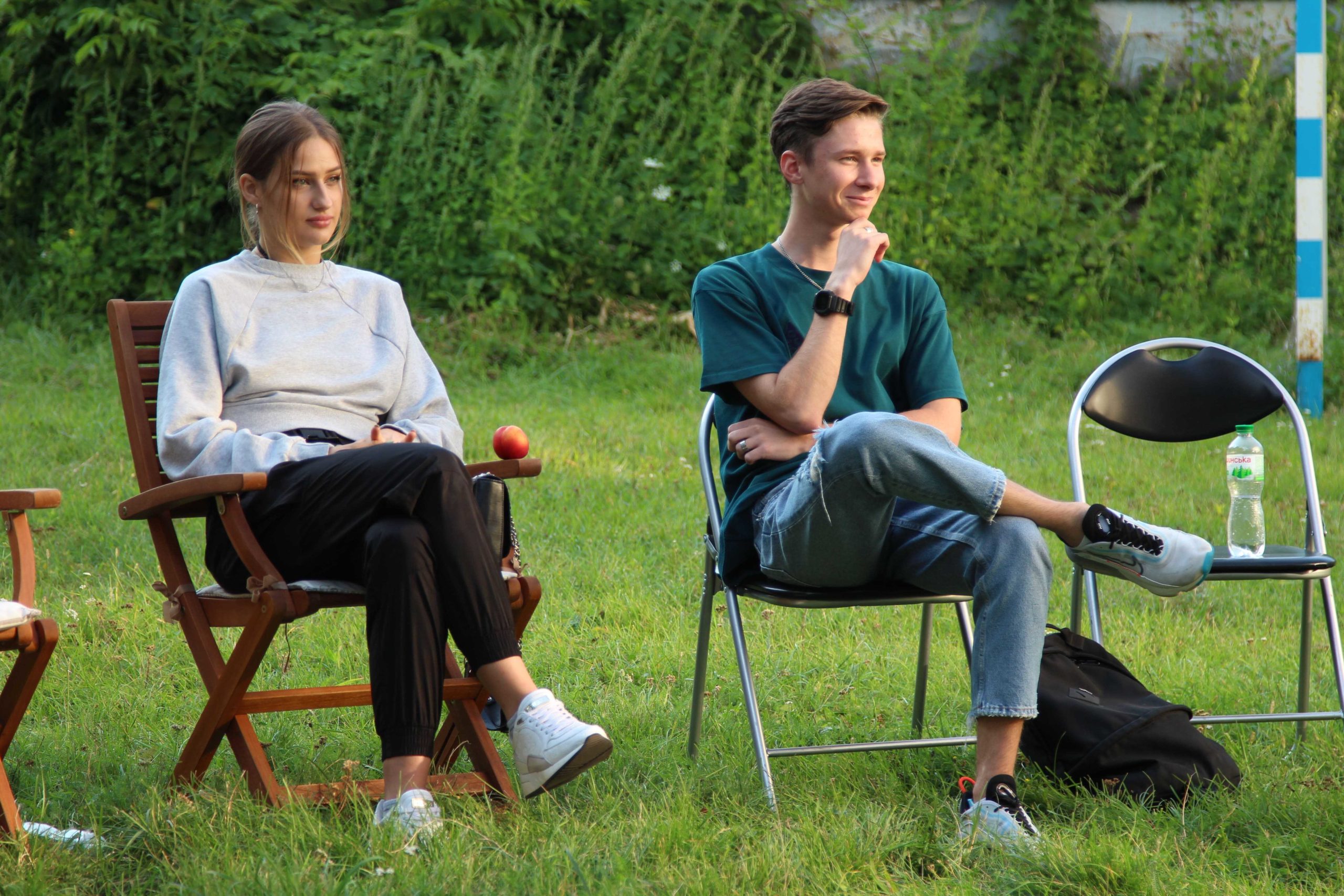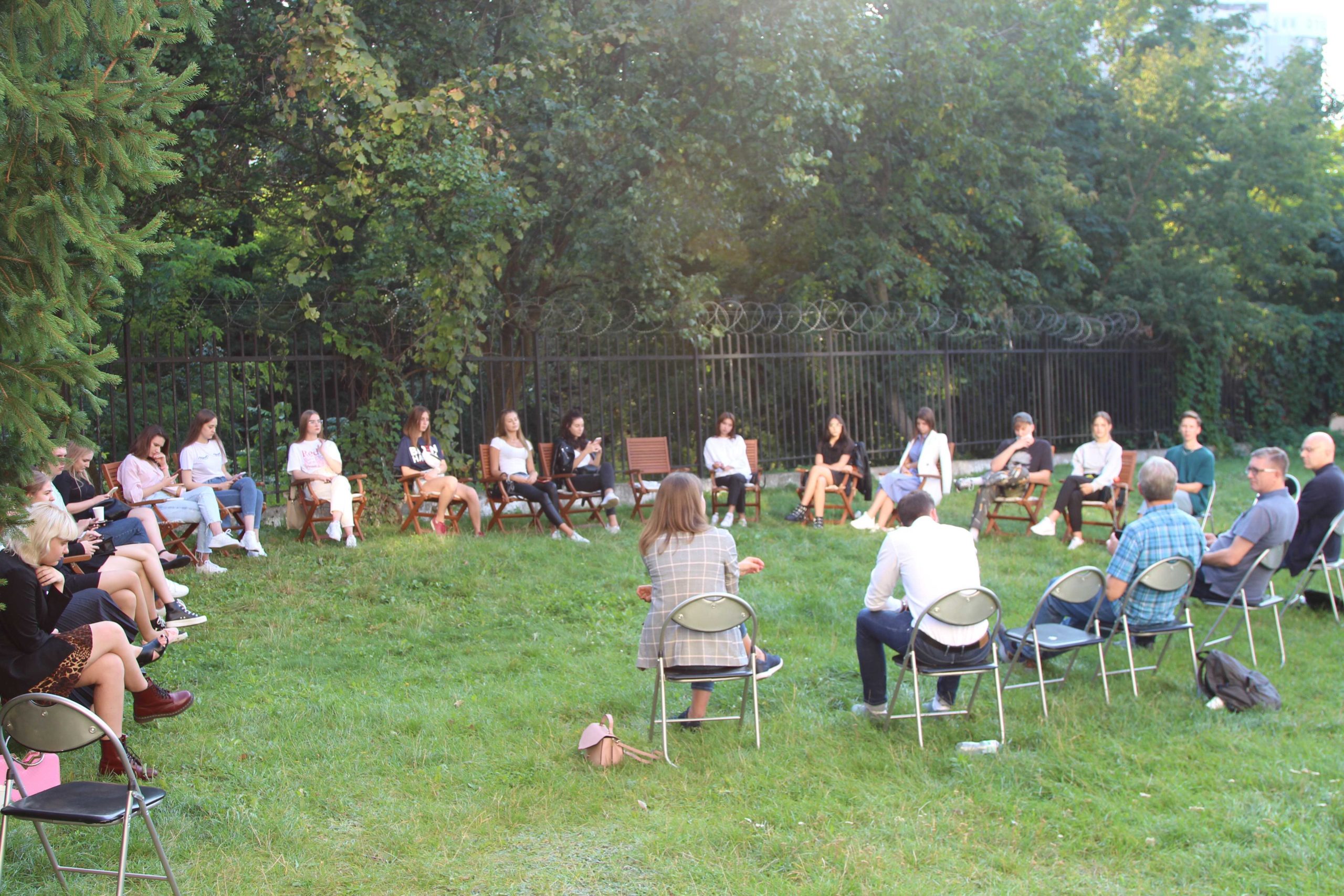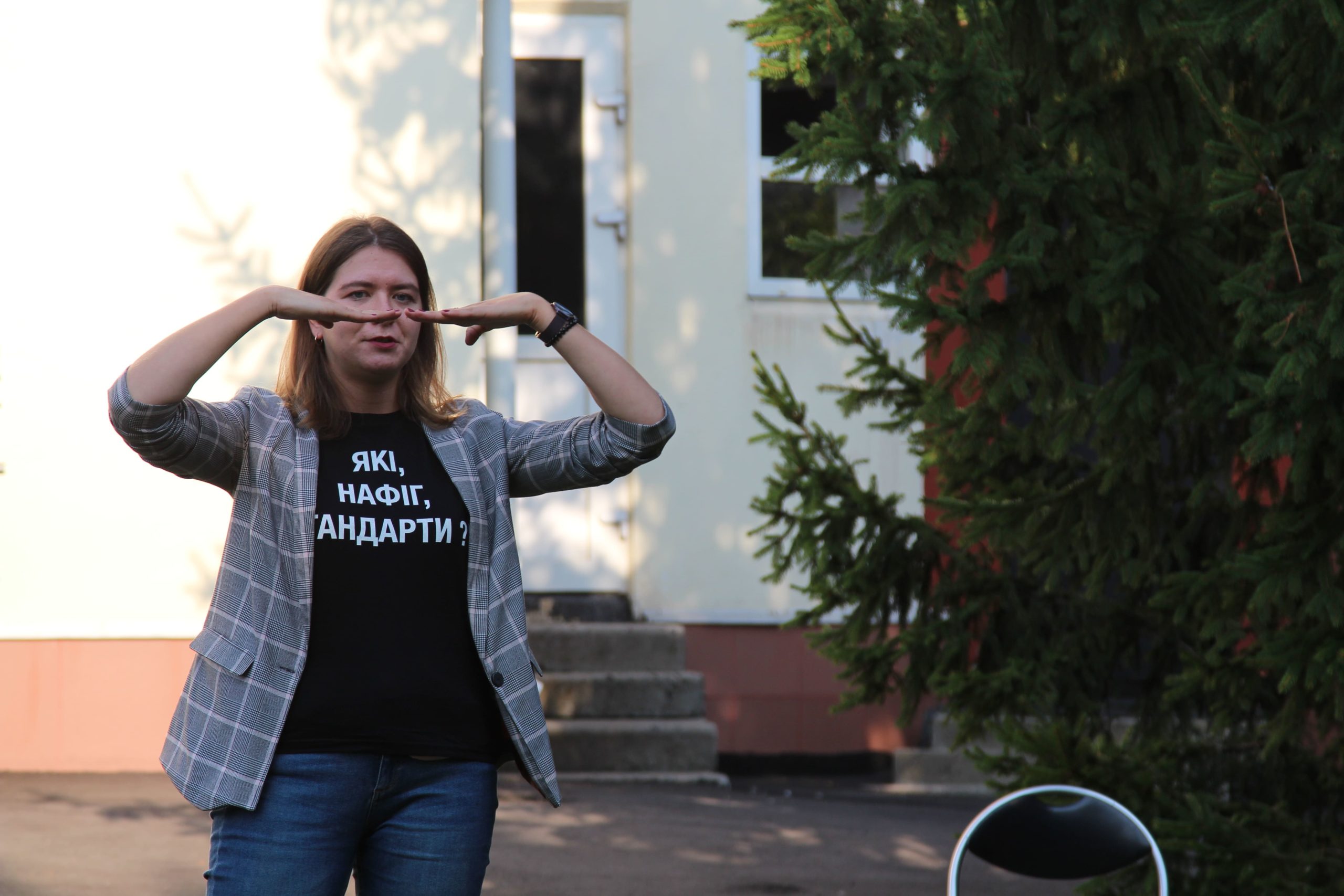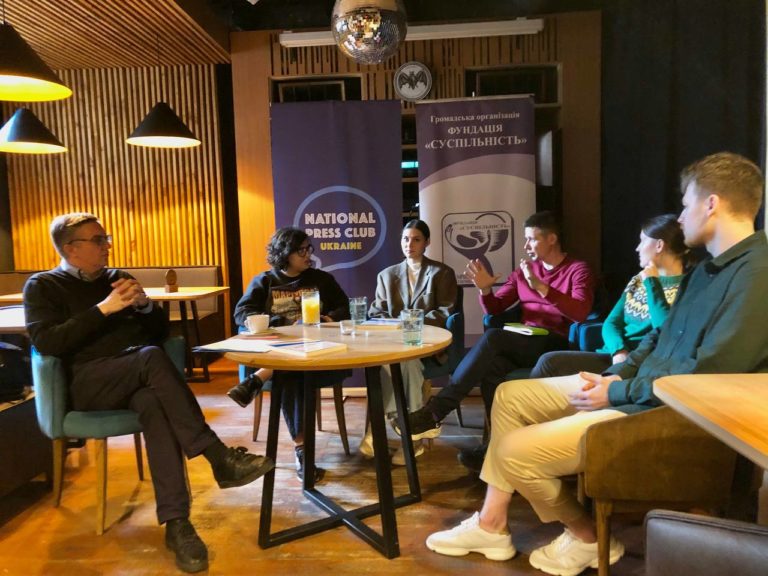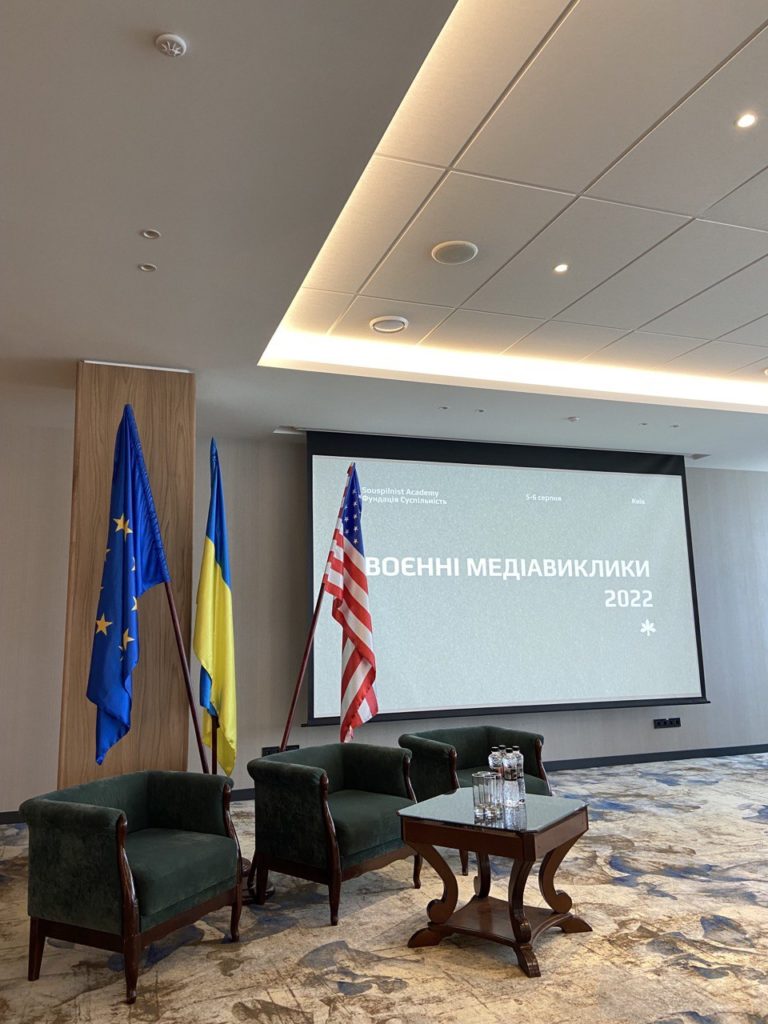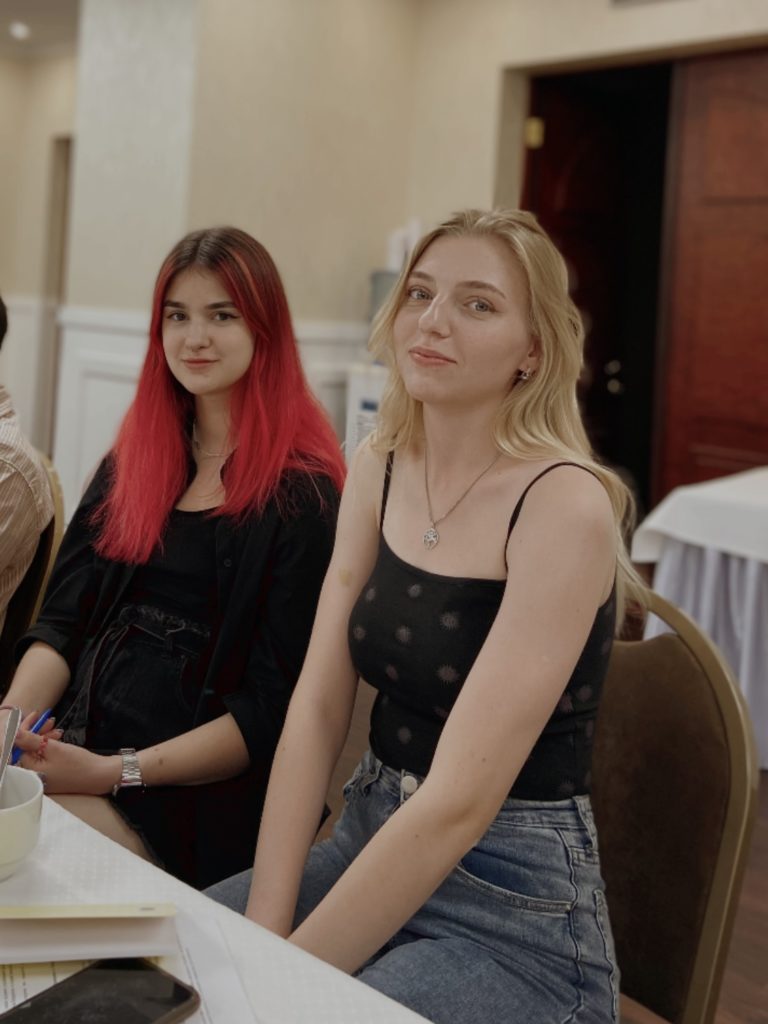Where does the boundary lie between democracy and unknowingly spreading hostile narratives? Are existing journalistic standards still of relevance today? How should journalists stand up for their professional rights working for an oligarch-owned media outlet? – These and other questions were discussed during the expert discussion “Media and democracy: how to understand the tracks and steer well through the turns?”
The participants in the discussion were Mariia Pysarenko, a journalist at Channel 5, Arsen Tsymbaliuk, a journalist at Ukraine 24, Oleksandr Omelchuk, IT-creator and co-founder of the OMTV (UA) group of channels, Adrian Karmazyn, chief of the Ukrainian Service of the Voice of America (2005-2015).
One of the main problematic situations that journalists are facing in their everyday work still today are the relations between the press and the government, balanced coverage of wars, acts of terrorism, violent campaigns by fanatics, seizure of power by extremists, as well as countering disinformation and aggressive propaganda.
In the media experts’ opinion, it is important to provide audiences with reliable information about events, while not letting terrorists manipulate the audience. By giving terrorists a chance to speak, journalists run the risk of expanding hostile narratives to reach a larger audience and help find more of their supporters.
Hence the question about setting boundaries between personal opinions and unbiased coverage of events. With the spread of social networks, the dilemma has arisen more and more about what journalists can and cannot post on their personal pages, as opinion leaders.
We bear responsibility toward the audience, and so we can’t promote someone we like during the elections. It’s important that we think about what we let ourselves post on social networks to keep the trust of people, stressed Adrian Karmazyn.
Ukrainian journalists should extensively use all fact-checking tools available, noted Oleksandr Omelchuk. They shouldn’t automatically relay wide-spread hostile narratives onto their pages on social networks.
The issue of media and democracy is also acute in Ukraine’s reality because the commercial broadcasters have been playing a key role in Ukraine since its independence, including TV channels that not infrequently promote the political interests of their investors.
The political factor is most seen where the audience is large, with lots of voters. Even though the creative class doesn’t watch TV, the latter still matters much, and the channels bring people to power, noted Mariia Pysarenko.
The journalist at Channel 5 also noted that it is very hard for those working in the news format on TV not to get trapped in self-censorship or even in supporting the party ideas of investors paying salaries. A way out is through the declaration of their rights and obligations, the real efficacy of editorial charters.
Journalists can’t distort the reality, but those on TV are fond of doing it. That’s why it’s important to have professional conscience and adhere to professional standards. We should fight and say that we have job responsibilities, that we’re working for the audience – it’s a way to defend ourselves, added Mariia Pysarenko.
However, Arsen Tsymbaliuk noted that not all journalists were cultivated in the spirit of professional standards, therefore, in the Ukrainian information space, there is a need to make the market less independent on oligarchic media’s offers and enhance the influence of independent newsrooms.
In Oleksandr Omelchuk’s opinion, one possible solution for independent journalists is to build their own media projects, including YouTube channels – to do so today, all it takes is a smartphone and a microphone.
The event was organized by Souspilnist Foundation with the help of the National Press Club Ukraine and the Independent Media Council, and with the support of the Media Program in Ukraine.
